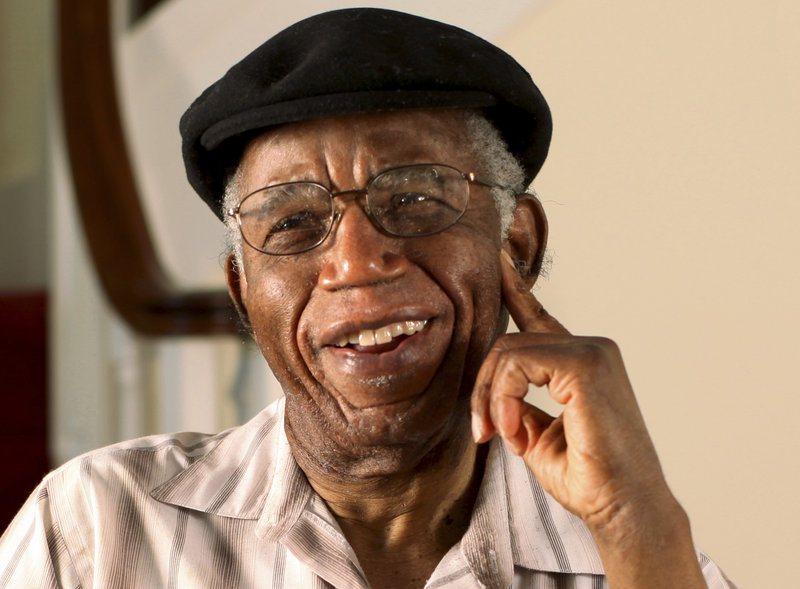NEW YORK – The opening sentence was as simple, declarative and revolutionary as a line out of Hemingway:
“Okonkwo was well known throughout the nine villages and even beyond,” Chinua Achebe wrote in “Things Fall Apart.”
Africans, the Nigerian author announced more than 50 years ago, had their own history, their own celebrities and reputations.
Achebe, the internationally celebrated Nigerian author, statesman and dissident, who died Thursday at age 82 after a brief illness, continued for decades to rewrite and reclaim the history of his native country.
Achebe lived through and helped define revolutionary change in Nigeria, from independence to dictatorship to the disastrous war between Nigeria and the breakaway country of Biafra in the late 1960s.
He knew both the prestige of serving on government commissions and the fear of being declared an enemy of the state. He spent much of his adult life in the United States but never stopped calling for democracy in Nigeria or resisting literary honors from a government he refused to accept.
Even in traffic today in Lagos, Nigeria’s largest city, hawkers sell pirated copies of his recent civil war memoir.
“What has consistently escaped most Nigerians in this entire travesty is the fact that mediocrity destroys the very fabric of a country as surely as a war — ushering in all sorts of banality, ineptitude, corruption and debauchery,” wrote Achebe, whose death in Boston was confirmed by Brown University, where he taught.
His eminence worldwide was rivaled only by Gabriel Garcia Marquez, Toni Morrison and a handful of others. Achebe was a moral and literary model for countless Africans and a profound influence on such American-based writers as Ha Jin, Junot Diaz and Morrison, who once called Achebe’s work an “education” for her and “liberating in a way nothing had been before.”
His public life began in his mid-20s. He was a resident of London when he completed his handwritten manuscript for “Things Fall Apart,” a short novel about a Nigerian tribesman’s downfall at the hands of British colonialists.
Turned down by several publishers, the book was finally accepted by Heinemann and released in 1958 with a first printing of 2,000. Its initial review in The New York Times ran less than 500 words, but the novel soon became among the most important books of the 20th century, a universally acknowledged starting point for postcolonial, indigenous African fiction, the prophetic union of British letters and African oral culture.
“Things Fall Apart” has sold more than 8 million copies worldwide and has been translated into more than 50 languages.
Achebe never won the Nobel Prize, which many believed he deserved, but in 2007 he did receive the Man Booker International Prize, a $120,000 honor for lifetime achievement.
Paralyzed from the waist down since a 1990 auto accident, Achebe lived for years in a cottage built for him on the campus of Bard College north of New York City, where he was a faculty member.
He joined Brown University in 2009 as a professor of languages and literature.
Achebe, a native of Ogidi, Nigeria, regarded his life as a bartering between conflicting cultures. He spoke of the “two types of music” running through his mind, Ibo legends and the prose of Dickens.
After graduating from the University College of Ibadan in 1953, Achebe was a radio producer at the Nigerian Broadcasting Corp., then moved to London and worked at the British Broadcasting Corp. He called “Things Fall Apart” an act of “atonement” for abandoning traditional culture.
Copy the Story Link
Send questions/comments to the editors.



Success. Please wait for the page to reload. If the page does not reload within 5 seconds, please refresh the page.
Enter your email and password to access comments.
Hi, to comment on stories you must . This profile is in addition to your subscription and website login.
Already have a commenting profile? .
Invalid username/password.
Please check your email to confirm and complete your registration.
Only subscribers are eligible to post comments. Please subscribe or login first for digital access. Here’s why.
Use the form below to reset your password. When you've submitted your account email, we will send an email with a reset code.